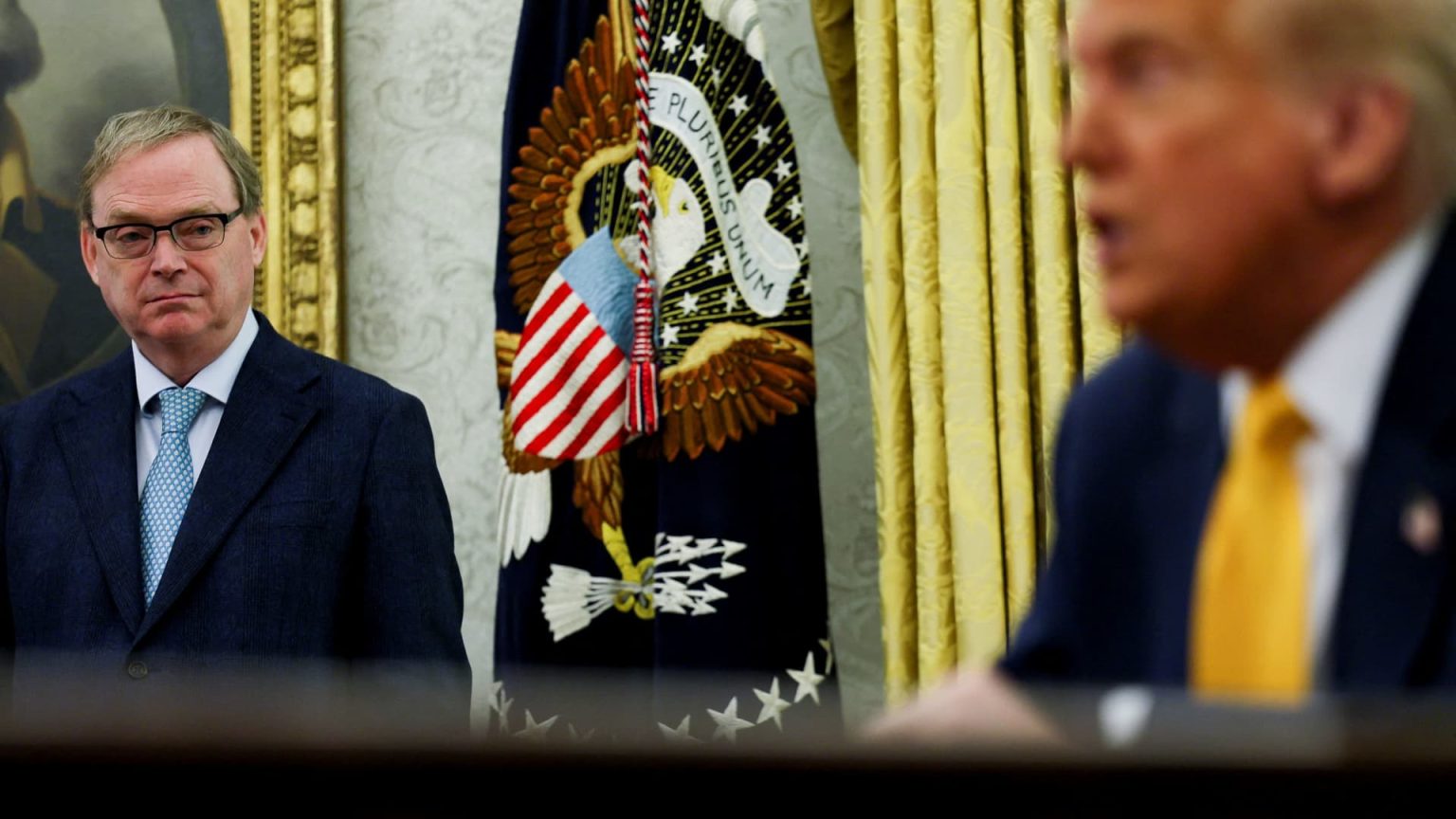In the wake of significant fluctuations in the U.S. stock market, White House National Economic Council Director Kevin Hassett defended President Donald Trump‘s economic policies amidst claims that he intentionally caused the market to crash. This assertion arose after Trump shared a provocative video on his social media platform, suggesting that his tariffs announcement was part of a broader strategy to manipulate financial markets. Despite concerns over a potential trade war and fears of a recession, officials insisted that the president’s aims were focused on supporting American workers rather than orchestrating a market downturn.
| Article Subheadings |
|---|
| 1) The Video that Sparked Controversy |
| 2) Market Reactions to Tariff Announcements |
| 3) Hassett’s Defense of Trump’s Policies |
| 4) Understanding Stock Market Dynamics |
| 5) The Future of U.S. Economic Policies |
The Video that Sparked Controversy
On April 4, President Donald Trump shared a video on his social media platform, Truth Social, which was originally disseminated on TikTok earlier that March. The video accused Trump of intentionally crashing the stock market by 20 percent to execute a larger economic plan. This video made bold claims that the turmoil in the markets would serve to push cash into treasuries and thereby compel the Federal Reserve to lower interest rates in May. The upload attracted significant attention and even raised questions about the president’s economic strategies, framing it as a “wild chess move” designed to reshape the financial landscape.
Market Reactions to Tariff Announcements
The chaos in the stock market was exacerbated by Trump’s recent announcement of retaliatory tariffs, which triggered widespread alarms concerning the potential onset of a prolonged global trade war. On Friday following the tariffs rollout, the market experienced an unprecedented sell-off, with the Dow Jones Industrial Average plummeting by approximately 2,231 points, or 5.5 percent. This decline marked its steepest drop since June 2020, prompting investors to reconsider their positions in light of escalating uncertainties about trade relations and its possible impact on economic growth. Concurrently, the broader S&P 500 index, reflecting market sentiment across sectors, suffered nearly 6 percent losses, compounding fears of an economic downturn.
Hassett’s Defense of Trump’s Policies
In an interview on ABC’s “This Week,” Kevin Hassett made it clear that any suggestion that Trump’s actions were intentionally harming the stock market was misguided. He emphasized that the president’s primary goal is to foster conditions that would benefit American workers. Hassett firmly stated, “He’s not trying to tank the market. He’s trying to deliver for American workers.” He reiterated that the downturn in market performance was not part of any strategic plan, asserting that the administration’s focus remains on solid economic growth and job creation.
Understanding Stock Market Dynamics
The dynamics of the stock market are complex and influenced by myriad factors, including economic policy, investor sentiment, and global events. In this case, the market reaction to the tariffs announcement drew attention to the interconnectedness of trade policies and market performance. Investors reacted swiftly to the potential implications of increased tariffs on other countries, fearing retaliation and further escalation of trade tensions. Typically, such uncertainties can result in more volatility within the markets, often leading to significant sell-offs as investors seek to mitigate loss risk. Understanding these dynamics is crucial for navigating the ever-evolving landscape of global finance.
The Future of U.S. Economic Policies
As the situation continues to develop, the broader implications for U.S. economic policies remain a topic of debate among economists and policymakers. The administration has repeatedly emphasized its intent to support the American economy through measures that aim to protect domestic industries while addressing international competition. How effective these policies are in stabilizing the markets and supporting economic growth will be a focal point for both supporters and critics of the administration in the upcoming months. Monitoring the responses from investors and global partners will be crucial as the potential for a recession looms, alongside considerations of how regulatory changes and tariffs may reshape economic relationships worldwide.
| No. | Key Points |
|---|---|
| 1 | President Trump is accused of intentionally crashing the stock market, an assertion he denies. |
| 2 | The stock market experienced significant sell-offs following a new round of tariff announcements. |
| 3 | Hassett assures that the president’s focus is on delivering benefits to American workers, not manipulating the market. |
| 4 | Market dynamics are influenced by a variety of factors, leading to volatility in response to trade policy changes. |
| 5 | The future of U.S. economic policies will be crucial in determining market stability and growth. |
Summary
The recent turmoil in U.S. stock markets has highlighted significant concerns about the implications of President Donald Trump‘s economic strategies, particularly in light of the recent tariff announcements. While officials maintain that the administration’s intention is to bolster the American economy, the response from the markets suggests a complicated relationship between trade policy and market health. As this evolution unfolds, stakeholders across various sectors will be closely watching how these economic decisions affect not only market stability but also the broader economic outlook for the country.
Frequently Asked Questions
Question: What triggered the recent stock market decline?
The stock market decline was largely triggered by President Trump’s announcement of retaliatory tariffs, leading to fears of a prolonged trade war and its potential effects on the economy.
Question: How did officials respond to allegations of a market manipulation strategy?
Officials, including National Economic Council Director Kevin Hassett, categorically denied any intention by President Trump to undermine the market, asserting that the focus remains on supporting American workers.
Question: What impact do tariffs have on the economy?
Tariffs can lead to increased prices for goods, pressure domestic industries, and spark retaliatory measures from trade partners, which can create volatility in financial markets and complicate economic relationships globally.


